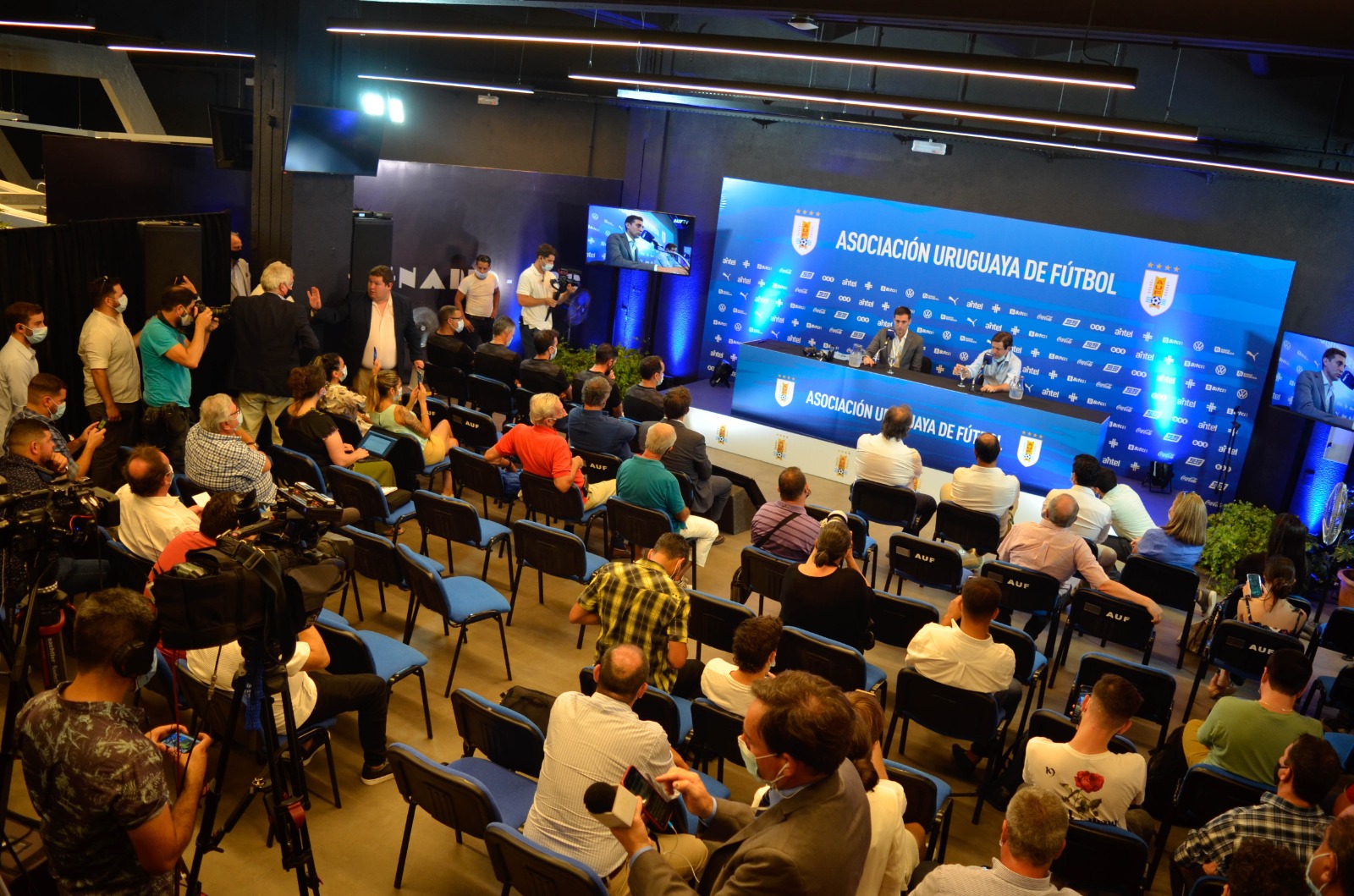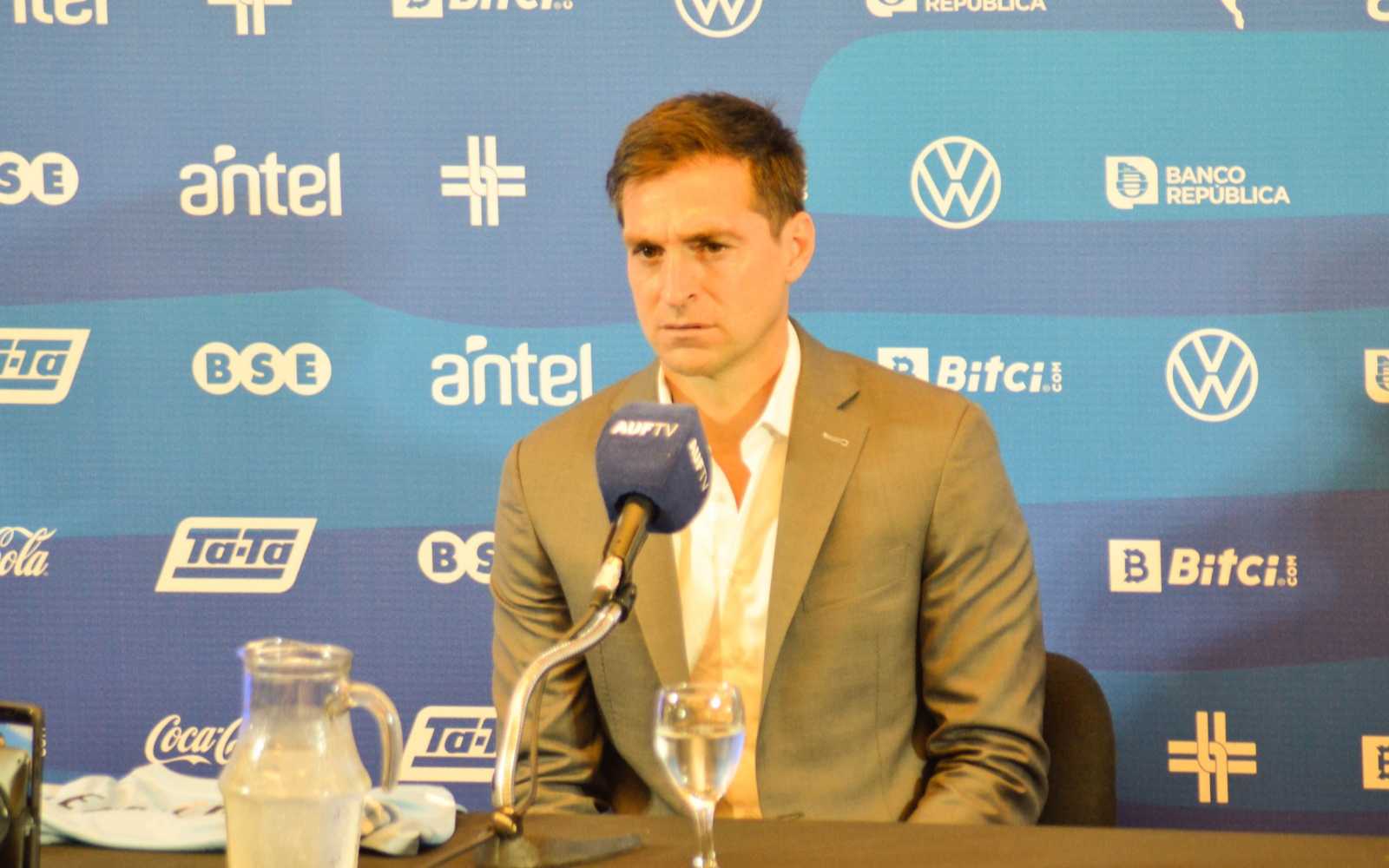“The Executive Committee informs that it has resolved to terminate the contract of Mr. Oscar Washington Tabárez and other members of the coaching staff of the senior team,” thus said the statement from the Uruguayan Football Association (AUF), which on November 19 ended the 15 years and 8 months journey of Tabárez as the technical director of “La Celeste”.
Farewell to Tabárez
Óscar Washington Tabárez, the coach who led Uruguay to 4th place at the 2010 World Cup in South Africa and 5th at Russia 2018, won the Copa América in 2011 in Argentina, was dismissed as a result of the meager results of the last six matches of the Uruguayan National Team, which left the team in 7th on the qualifying table of the South American Football Confederation (Conmebol), which grants four direct places to the Men’s Soccer World Cup in Qatar 2022 and one more, which will be decided in a play off against an Asian team – it will be a single game, in June 2022, on a neutral pitch.
Óscar Washington Tabárez directed 221 matches in the Uruguay National Team, of which he won 104, drew 58 and lost 59.
The last matches of “La Celeste” were very negative in results. After beating Ecuador 1 – 0 at home in September 2021, they managed a goalless draw against Colombia also at home, then visited Argentina and were beaten 3 – 0, before Brazil also beat them 4 – 1. Uruguay improved in the game against Argentina at home, but fell 0-1 and closed the year 2021 suffering at the height of La Paz as Bolivia handed them a resounding 3-0 defeat.
In those six matches, Uruguay only scored two goals and secured four points out of a possible 18, conceding 11 goals.
In this way, the Uruguay National Team face the last 4 games of the South American Qualifiers, having achieved only 38% of the points played for, 16 from a possible 42.
To reverse the bad sporting moment, Uruguay will have to tackle the 4 games remaining, against Paraguay in Asunción, Venezuela in Montevideo – where it will also host Peru – and close its round against Chile in the trans-Andean country, trying to obtain 75% of the points at stake, to have a chance of reaching 5th place and access to the playoff spot to qualify for Qatar 2022.
For that, the AUF authorities decided to entrust the challenge of reaching Qatar in 2022 to a young coach. Diego Alonso (46) was appointed the new coach of the Uruguayan soccer team on December 14, 2021.

His story
Alonso was a professional soccer player from 1992, when he debuted at Bella Vista in Montevideo until he retired in 2011, playing for Peñarol.
In Uruguay he defended the colors of Nacional, in Argentina those of Gymnastics and Fencing of La Plata, and he had a long stint in Spain where he played for Valencia, Atlético de Madrid, Racing de Santander, Málaga and Murcia. In Mexico he played for Pumas de la UNAM.
As a player, he also wore the national team’s jersey seven times, including at the 1999 Copa América, where Uruguay finished second behind Brazil.
In his role as coach, Mexico is precisely the country where he has had the best performance and success in directing Pachuca and Monterrey, clubs with which he won a Clausura Tournament (Pachuca) and a CONCACAF Champions League.
In 2017 he was third in the Club World Cup with Pachuca.
In addition, he coached Bella Vista and Peñarol in Uruguay, Guaraní and Olimpia in Paraguay, and was the first Inter Miami coach in Major League Soccer in the United States.
Official presentation
Profile of the new coach of Uruguay’s senior team
Full name: Diego Martín Alonso López
Date of birth: April 16, 1975 (age 46)
Place of birth: Montevideo, Uruguay
After the formal presentation, he spoke with the media in person and virtually at the same time with the participation of journalists from different parts of the country and abroad.
He commented that he had contact with the former coach, Óscar Washington Tabárez, whom he has known for a long time. He said: “He knows my grandparents and my parents. We were born in the same neighborhood and in my house there was always admiration and respect for him. We have had contacts, always respectful, and we have received the response we expected, at the same level as always. I’d rather keep the conversation we had private.
“I am proud to be the coach of the national team. For me, that’s the most important thing.”
On other queries he replied:
“I cannot convey an idea that I do not feel; we transmit what we feel and the player perceives it, we have variants with the players on the offensive side, and on the defensive side, being able to dominate the games through pressure.
“I like to dominate the games through the defensive phase with pressure and from the game being the team that can create more situations. That is how I feel about football. There are paths, paths and characteristics of footballers that can lead us to have a more combined football or maybe more vertical, or of speed or of generation inside,” he pointed out.
“Beyond all the accounts that can be done today, what interests me is the first game; not even the second. You have to be focused on Paraguay, the first objective. In our head is the first game and to be able to prepare it. And from then on continue to grow. What we need and seek is to push everyone to the same place.”
Regarding his relationship with the media and the press, he said:
“It is a pleasure to have a cordial dialogue with the media, and with respect we can debate all the time and on our part, too will find respect on the roles.”
Asked about the characteristics of his way of coaching, he expressed:
“I prepared a lot to be a coach, and a lot before I was a coach. I have grown up, I have been working for ten years to learn and not make mistakes. I like mobility and carry out different strategies, we have the obligation to have different scenarios and profiles, and to make the decisions that are considered appropriate at the time. Nor does it matter if we play in a unique way, or change on the fly, but how we do it, that is, how we execute the plan that is decided, against a rival, and yes, give answers, have tools and rehearse a lot how to face contingencies before they happen, preparing different situations.”
Ernesto Ortiz Gomez
Uruguay

